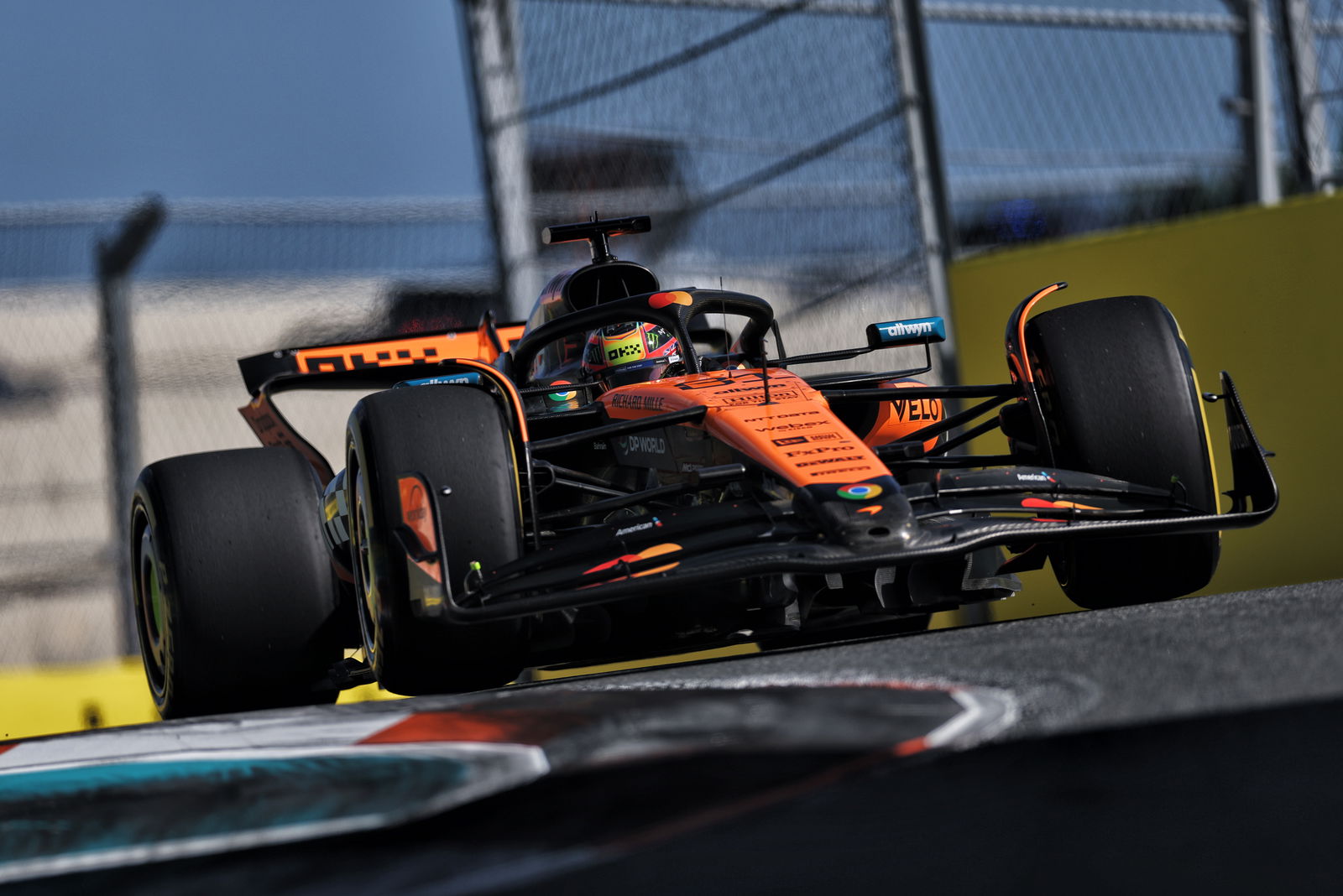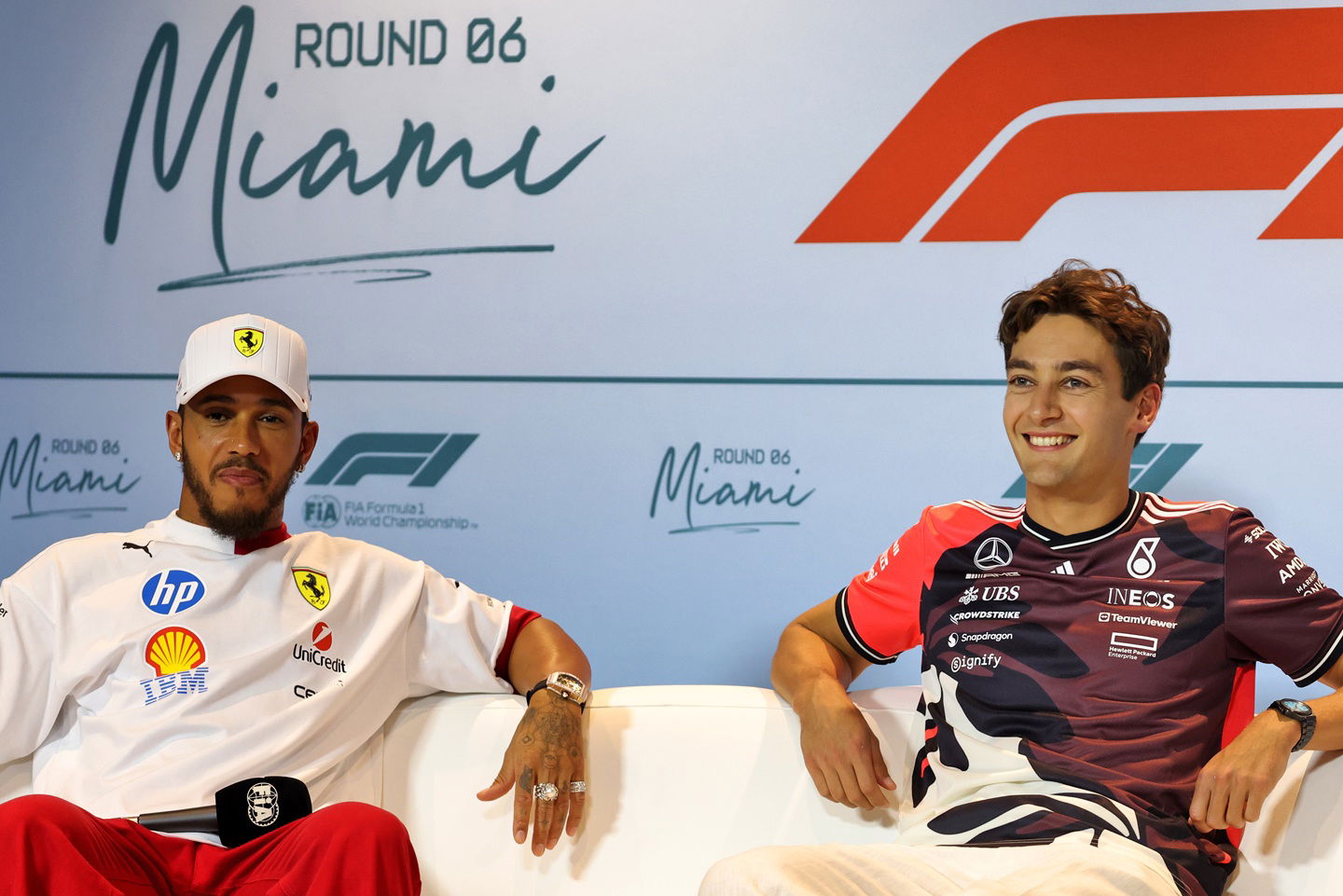Max Verstappen escapes punishment for driving too slowly in Miami Sprint qualifying
No penalty for Max Verstappen in the Miami sprint, but Red Bull has been reprimanded for the incident.

Red Bull Formula 1 driver Max Verstappen has escaped punishment after he was investigated by the stewards for driving unnecessarily slowly in sprint qualifying at the Miami Grand Prix.
Following Friday’s grid-deciding session, Verstappen was summoned by the stewards for exceeding the time limit between the safety car lines on his outlap in SQ2.
F1’s sporting regulations state that “at no time may a car be driven unnecessarily slowly, erratically or in a manner which could be deemed potentially dangerous to other drivers or any other person”.
The stewards noticed that Verstappen was constantly six seconds slower than required on that particular, with the FIA having set a minimum lap time of 1m45s for the Miami weekend.
However, it was discovered that the issue was caused by a programming error on Red Bull’s part, which meant that Verstappen’s dashboard was showing an incorrect delta time.
Red Bull identified the problem after the first cool-down lap and instructed Verstappen to drive at least six seconds faster than what was mentioned on his steering - something the Dutchman complied with.
Since the four-time F1 world champion did not drive “unnecessarily slowly”, nor did he impede another car, the stewards have decided not to penalise him for breaching the regulations.
However, Red Bull has been reprimanded for its role in the incident, with the stewards noting that it is the team’s responsibility to ensure the driver is fed with the right information in the car.
It's worth noting that this incident is separate to Verstappen's run-in with Lance Stroll in SQ1, which was not investigated by the stewards.
Verstappen will start the sprint race from fourth on the grid.
Full stewards verdict
The Stewards heard from the driver of Car 1 (Max Verstappen), the team representative and reviewed video, timing, telemetry and in-car video evidence and determined as follows:
Car 1 was around 6 seconds above the required minimum time between Safety Car Lines 1 and 2 for one lap in SQ2, but complied with the requirement in all other laps. Telemetry showed that the driver was driving with a constant speed throughout the lap without any other cars around as if he was managing the delta at approx. 6 seconds off the relevant number.
During the hearing the team stated that due to a false programming in the car the delta time displayed in the car had an offset of 6 seconds and whilst the driver was managing the delta displayed he was constantly approx. 6 seconds above the minimum time. The team identified the problem by the end of the first cool-down lap and immediately instructed the driver to manage his speed in a way that he would be min. 6 seconds below the delta time displayed in the car, which he did in all following laps. This was confirmed by the telemetry.
The Stewards acknowledge that, whilst there has been a breach of the regulations, VER did not drive “unnecessarily slowly” based on the information he had in the car and did not impede any other cars or create any dangerous situation and therefore determine that a penalty for the driver is not warranted. However, a Reprimand to the team is issued as they are responsible for ensuring that correct timing information is displayed in the car.
It is worth noting that in different circumstances a more severe penalty might be applied for a similar infringement.


